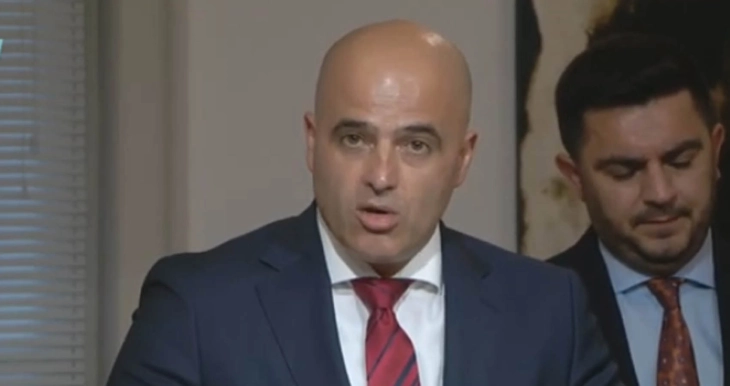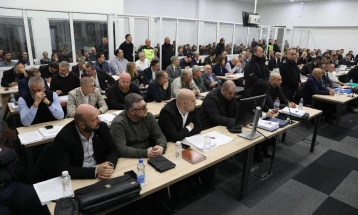Kovachevski: Now up to all of us how soon we’ll complete process of negotiations, accession to EU

Sofia, 5 September 2022 (MIA) – Any delay or blocking of decision-making in Parliament in terms of European integration is stalling the country’s path towards full-fledged EU membership. Now it’s up to us, up to all political parties, all MPs and all those involved in the negotiation process, how soon we’ll complete the process of negotiations and accession to the EU, Prime Minister Dimitar Kovachevski told reporters in Sofia.
“The basis of our NATO membership, of the start of EU negotiations are the Prespa Agreement with Greece, and the Friendship Treaty with Bulgaria which was the basis for achieving an agreement to lift Bulgaria's veto and start negotiations with the EU. On the path to EU membership, we have activities that we need to undertake, and some of them are the responsibility of the Members of Parliament,” Kovachevski said.
He noted that North Macedonia started the EU accession negotiations and the government adopted a decision to establish the negotiating structure.
He stressed that today's meeting with the Bulgarian caretaker government, and later with Bulgarian President Radev, is part of the meetings held in order to ensure all that is necessary for uninterrupted supply of electricity to the country during Q4 2022 and Q1 2023 which, he added, are always the most critical for the supply of electricity given the increased needs for both heating and the industry.
“What we have already done as a state is to increase the production of electricity in domestic capacities, on which the ESM has already received the task of increasing production by 25 percent, and thus we cover the needs of citizens on the regulated market, i.e. households and small consumers. These include 72,000 companies that get electricity at a subsidized price from the state,” PM Kovachevski said.
That leaves the free market, he added. In this context, he said meetings are held with the representatives of all chambers of commerce with great attention paid to their demands which are discussed daily - putting into operation all facilities that are not owned by the state, which include TE-TO and renewable energy sources that are privately owned.
In addition, Kovachevski said, today's meetings in Bulgaria as an exporter of electricity are aimed at covering the electricity needs that are procured on the free market and are predominantly from imports.
Prime Minister Dimitar Kovachevski held Monday in Sofia a meeting with the Bulgarian Caretaker Prime Minister Galab Donev to discuss ways to address the consequences from the energy crisis in which they agreed the formation of a working group aimed at defining the technical aspects regarding the signing and concluding of an energy supply agreement for quantities estimated at 200 megawatt hours of electricity for the needs of North Macedonia up until 31 March 2023.
North Macedonia’s delegation led by PM Kovachevski also held a working meeting with Bulgarian President Rumen Radev in Sofia on Monday afternoon, discussing about dealing with the energy crisis and promoting bilateral relations. Radev stressed that Bulgaria will once again be in solidarity with brotherly Macedonia.







